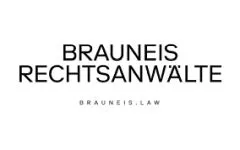At the end of last year, we reported on the possibilities for heirs to ultimately receive more than the actual amount available in the estate (compensation for gratuitous benefits provided by the testator during his/her lifetime to other persons entitled to a compulsory portion from the title of compulsory portion supplement). In a recent decision, the Austrian Supreme Court (OGH) has defined important parameters for the valuation of gratuitous benefits for the (supplementary) claim to the compulsory portion (OGH 25.07.2024, 2 Ob 43/24y).
Legal basis
Gratuitous benefits (Gifts or donations) that a person entitled to a compulsory portion or a Third Party receives from the testator during the latter's lifetime or in the event of death are in principle to be added to the estate and credited against any monetary compulsory portion of the recipient of the gift (as a person entitled to a compulsory portion) (§ 781 of the Austrian Civil Code – ABGB). In contrast to gifts to persons entitled to a compulsory portion, gifts to a Third Party (not entitled to a compulsory portion) are only subject to addition within the last two years prior to the death of the testator. The addition of gifts increases the value of the estate and accordingly also the compulsory portions. However, a person entitled to a compulsory portion must also have the gifts made to him taken into account at the same time.
The facts of the case
In the Supreme Court decision mentioned at the beginning, the initial situation was as follows:
The grandfather, who later died, and his wife signed a transfer contract during their lifetime to donate their two half-shares in a property to their son, making him the sole owner of the entire property. The sole owner and son of the grandfather subsequently died. His two sons (the two plaintiffs) inherited the property from their father.
On the basis of a last will, the defendant was the sole heir of the applicants' grandfather, who subsequently also died. The plaintiffs, each claiming a quarter, sought payment of their statutory compulsory portion from the defendant and sole heir, citing their right to a compulsory portion. The defendant objected that the claim of the plaintiffs to a compulsory portion was already covered by the property of the deceased grandfather (inherited by their father).
At the time of the transfer from the grandfather to his son and father of the plaintiffs, the value of the property was EUR 746,000; however, the value of the half-shares – taking into account a discount for co-ownership (due to the lower marketability of a property share compared to sole ownership, a deduction of 10 to 15 per cent of the total value is usually made) – however, only EUR 336,000 each.
Valuation of gratuitous benefits
In the above-mentioned court proceedings, the Supreme Court had to clarify the question of whether the share of the property transferred to the plaintiffs' legal predecessor should be valued taking into account a discount for co-ownership. The defendant had already requested in the previous instances that no deduction be made for co-ownership in the present case because the legal predecessor of the two plaintiffs was, after all, the sole owner of the property under the transfer agreement. This would reduce the plaintiffs' compulsory portion and the defendant would therefore have to pay a smaller amount to the plaintiffs only.
The Supreme Court had a different view on this matter; it considered the discount for co-ownership – as applied by the previous instances – to be correct. According to the Supreme Court, the decisive aspect for the valuation of the property share is that the legal predecessor of the plaintiffs had received the second property share from the deceased's wife (in the present case: the grandfather's wife). There would be no reason why the donation of a Third Party to the recipient should lead to a higher valuation of the donation of the deceased. In its recent decision, the Supreme Court relied in particular on a decision from 2016 (2 Ob 108/16w), according to which a deduction for co-ownership is to be made in the context of gift deduction even if the testator had transferred his property share to the other half-owner (and the latter becomes the sole owner as a result).
On the basis of this decision, the two plaintiffs, who were entitled to a compulsory portion, only had to have the lower value of the property share (EUR 336,000 instead of EUR 373,000) taken into account, which is why the heiress ultimately had to pay the grandchildren a higher compulsory portion.
Good advice is recommended
Particularly in the case of real estate, even minor discrepancies in the valuation have a significant impact on possible payment obligations. Legal advice in such cases pays off.
The content of this article is intended to provide a general guide to the subject matter. Specialist advice should be sought about your specific circumstances.


